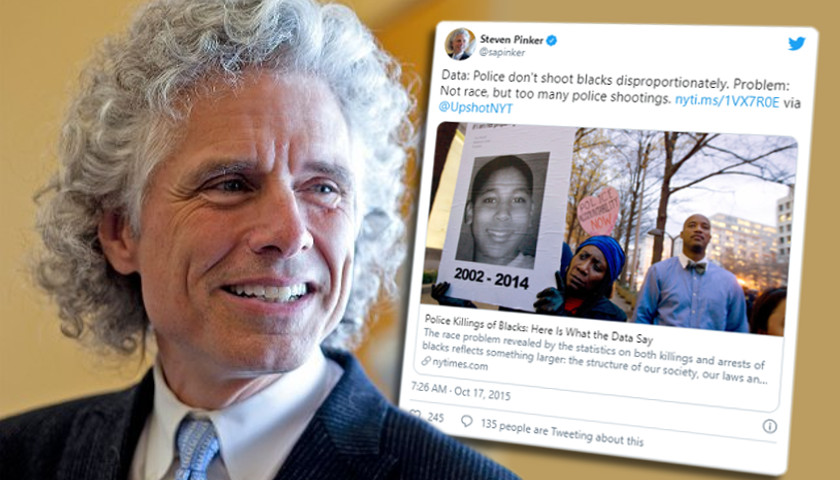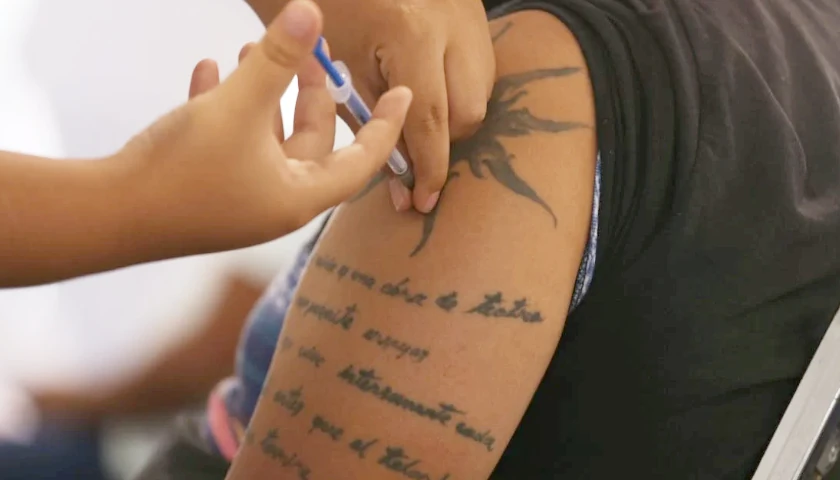by Maria Copeland
Hundreds of academics signed a letter written by members of the Linguistic Society of America (LSA), calling for a Harvard professor’s removal from the LSA list of “distinguished fellows,” as well as their list of media experts. The LSA did not accept their demands; and the the target of the demands says he has received hundreds of letters of support.
The letter accused Johnstone Professor of Psychology at Harvard Steven Pinker of behavior that does not live up to the society’s standards and does not merit the “honor, credibility, and visibility” its fellows receive. Specifically, the academics accused Pinker of acting in a way contrary to the society’s stance on racial justice, saying he has “a history of speaking over genuine grievances and downplaying injustices.”
“We aim to show here Dr. Pinker as a public figure has a pattern of drowning out the voices of people suffering from racist and sexist violence, in particular in the immediate aftermath of violent acts and/or protests against the systems that created them,” the letter states.
Their evidence was in the form of six messages the professor posted on Twitter, which they say indicate that “Dr. Pinker is untenable as an LSA fellow and should not be allowed to retain that status.”
In one such tweet, posted in 2015, Pinker shared a New York Times article titled “Police Killings of Blacks: Here Is What the Data Say.”
Summarizing the article in the caption, he said that the problem expressed by the data was not the disproportionate shooting of Black people, but rather excessive police shootings.
Data: Police don't shoot blacks disproportionately. Problem: Not race, but too many police shootings. http://t.co/HDoLJ3hT3p via @UpshotNYT
— Steven Pinker (@sapinker) October 17, 2015
The LSA letter objected to his analysis of the article, stating that the reporting contained a quote that read “The data is unequivocal. Police killings are a race problem: African-Americans are being killed disproportionately and by a wide margin.” This demonstrates, according to the letter, “that Dr. Pinker is willing to make dishonest claims in order to obfuscate the role of systemic racism in police violence.”
However, as a response from the New York Times points out, the original article does not make such a conclusive claim.
The author follows up the quote cited by the LSA letter by saying that the “unequivocal data” actually “does not prove that biased police officers are more likely to shoot blacks in any given encounter,” and suggests that because every police encounter comes with risks, other factors could be at play than a specific race.
The linguists stated that they had no desire to “cancel” Pinker: “We do, however, believe that the examples introduced above establish that Dr. Pinker’s public actions constitute a pattern of downplaying the very real violence of systemic racism and sexism.”
More than 600 academics signed the LSA letter; the writers invited anyone who identifies as a linguist to submit their name.
However, the attempt to publicly condemn Pinker backfired. The LSA did not acquiesce to the linguists’ demands, Pinker told Campus Reform in an email, and he has been “the beneficiary of 15 defenses in various publications and blogs.” He wrote on Twitter that he has also received “200 private letters of support, from all ages, races, & genders; left & right; academic allies & adversaries; friends & strangers.”
“Not a random sample, of course, but it makes me wonder whether identitarian cancel culture depends on a Spiral of Silence: a majority intimidated into wondering ‘Am I the only sane one left?’” he commented.
Not a random sample, of course, but it makes me wonder whether identitarian cancel culture depends on a Spiral of Silence: a majority intimidated into wondering "Am I the only sane one left?"
— Steven Pinker (@sapinker) July 20, 2020
Pinker told Campus Reform that he has not seen anyone defending the letter.
Linguist John McWhorter wrote in an article that Pinker shared on Twitter that the letter to the LSA was not just a criticism of Pinker or his views; it was also a “demand for punishment that would also serve as an instructive example to others.”
“Today, views deemed insufficiently anti-racist (or also anti-misogynist) are increasingly described as thinly coded expressions of racism and misogyny that we are encouraged to treat as such,” McWhorter said.
– – –
Maria Copeland is a Virginia correspondent for CampusReform.
Photo “Steven Pinker” by Steven Pinker.





